Can somebody please decide whether the window is open or closed?
There has been much debate over the past few seasons on whether the Jets’ window to win the Stanley Cup is gaping or shut. It appeared open during their run to the Western Conference Final in 2017-18, then appeared closed after a disappointing first-round playoff loss in 2019 to the St. Louis Blues was followed by a similarly unsatisfying Qualifying Round defeat in 2020 at the hands of the Calgary Flames.
It then seemed open again after they swept the heavily-favoured Edmonton Oilers in the first round of the 2021 playoffs, then seemed closed again after their fundamental flaws were totally exposed in a Round 2 sweep at the hands of the Montreal Canadiens. Now, it seems open yet again after a strong offseason from general manager Kevin Cheveldayoff.
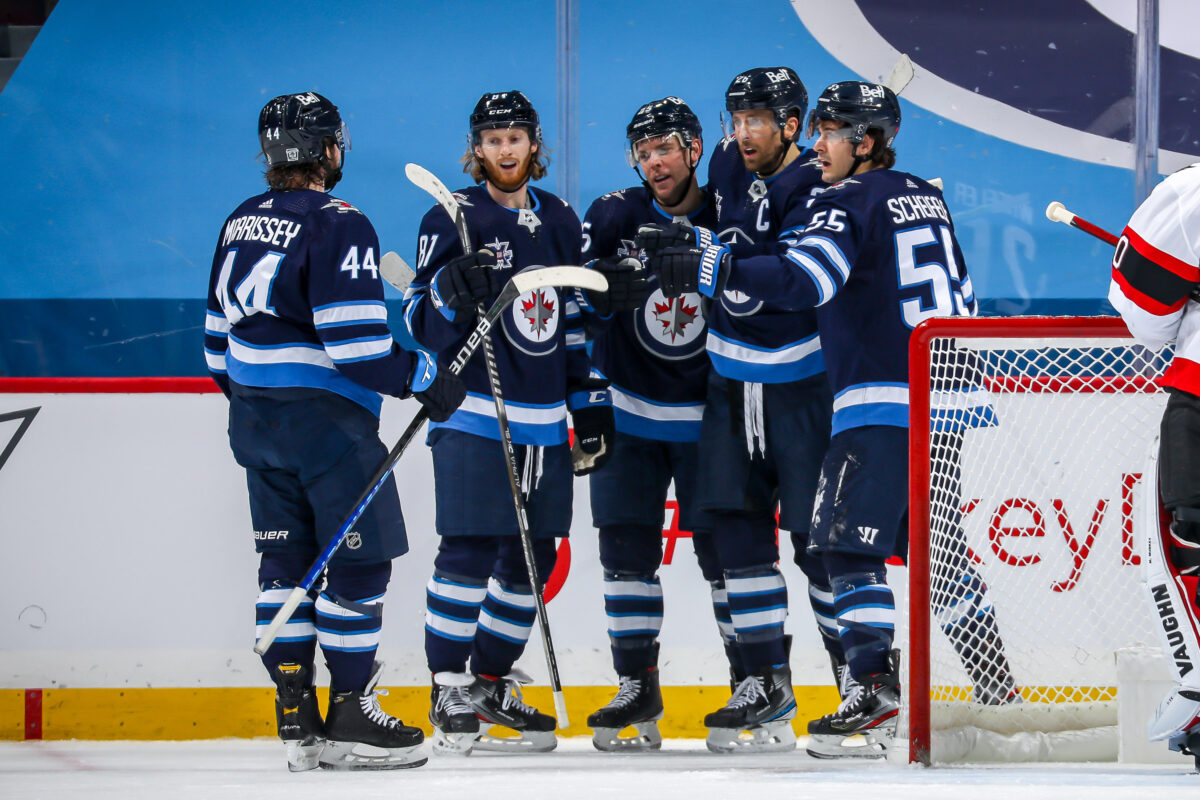
In this author’s opinion, the Jets are a legitimate Cup contender on paper, but that doesn’t mean the window can’t slam down on them before they can pass through it to glory.
Here, we’ll do a sweeping survey of every facet of the Jets — from their forwards, to their defense, to their goaltending, to their coaching — and analyze both the strengths that might facilitate a long playoff run and the question marks that may prevent it.
Top Six Talented, But Some Will Be Seeking Bounce-Back Seasons
The Jets’ forward depth is at an all-time best, with no shortage of prolific point-producers to deploy throughout the lineup.

The top six is pretty much set from a personnel standpoint, with some combination of Kyle Connor, Pierre-Luc Dubois, Nikolaj Ehlers, Mark Scheifele, Paul Stastny, and Blake Wheeler to comprise lines 1 and 2. The aforementioned six combined for 254 points last season.
Connor, Ehlers, Scheifele, and Stastny all had good to excellent 2020-21 campaigns, but Dubois and Wheeler will both be looking to perform better. The 23-year-old Dubois, on the final year of his two-year deal, will be out to prove he’s capable of producing consistently — after coming over from the Columbus Blue Jackets in a blockbuster trade, he showed flashes of brilliance but was too often invisible and ineffective.

Wheeler, meanwhile, was a liability at even strength and a shell of his former self from a defensive standpoint, but in his defence, played through much of the season with cracked ribs. There’s definitely a case to be made that the 34-year-old captain’s role should be reduced and should only play in situations where he’s likely to succeed —such as the power play — and be kept out of situations he can’t, even if that means less ice time.
Bottom Six Sees Turnover, Will Trend Younger
Taking a look at the bottom six, only two of six players who played a full-time role with the team last season will be back.
Those are Andrew Copp and Adam Lowry, who will comprise two-thirds of the third line. They are set to have a new winger, following the loss of Mason Appleton to the Seattle Kraken in July’s Expansion Draft. Copp, who had a career year in 2020-21 and just inked a one year deal, may also jump to the top six at times as he did last season.
Related: Winnipeg Jets’ 2020-21 Report Cards: Blake Wheeler
Battling for the role as Appleton’s replacement and for fourth-line jobs will be David Gustafsson, Jansen Harkins, Riley Nash, Cole Perfetti, Dominic Toninato, and Kristian Vesalainen.

The fourth line will be completely different and much younger than a year ago as the entirety of the “Dirty Thirties” line — Trevor Lewis, Nate Thompson, and Mathieu Perreault — all signed elsewhere as UFAs (Lewis with the Calgary Flames, Thompson with the Philadelphia Flyers, and Perreault with the Canadiens.)
Blue Line Has Been Dramatically Improved
The Jets’ patchwork defense was their biggest weakness since the 2019 mass exodus that saw Dustin Byfuglien, Ben Chiarot, Tyler Myers, and Jacob Trouba all depart. Ever since, they have allowed too many high-danger chances and have too often been over-reliant on goaltender Connor Hellebuyck to bail them out.
After two years of only tinkering by adding fringe players and waiver-wire pickups, Cheveldayoff finally committed this offseason to drastically improving his back end, and now it looks to be a strength for the foreseeable future.
Most recently, he re-signed Neal Pionk, who has blossomed into a top-four defenseman in his first two seasons with the Jets, to a four-year deal worth just shy of $6 million annually. In the days leading up to Free Agent Frenzy, he made separate trades to acquire the big-bodied Brendan Dillon from the Washington Capitals and the offensively-adept Nate Schmidt from the Vancouver Canucks.
Related: Jets’ Defense Set for Success After Pionk Signing
Both are massive upgrades on who they’ll replace: Derek Forbort (signed with the Boston Bruins,) and Tucker Poolman (signed with the Canucks.) Remarkably, he acquired those two strong defenders without sacrificing a roster player, getting Dillon for two second-round picks and getting Schmidt for only a 2022 third-rounder.
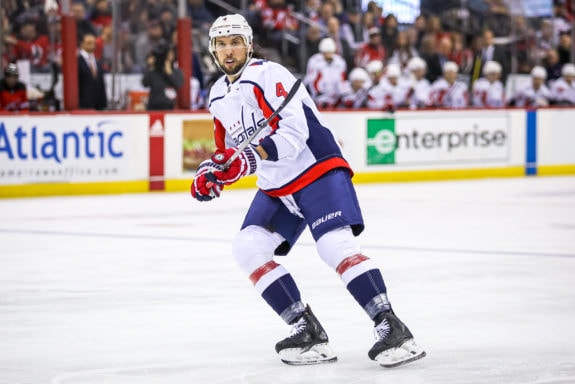
Brenden Dillon, former Washington Capitals (Jess Starr/The Hockey Writers) 
Nate Schmidt, former Vancouver Canucks (Photo by Derek Cain/Icon Sportswire via Getty Images)
Both sides of the defense are well-stocked now. Pionk joins the dependable Dylan DeMelo and Schmidt on the right, while Dillon joins bonafide top-pairing talent Josh Morrissey and Logan Stanley — who emerged as a reliable third-pairing option last season — on the left.
The Jets also have Nathan Beaulieu and Sami Niku, as well as top prospects Ville Heinola and Dylan Samberg, in the fold.
Hellebuyck Will Be Relied on Heavily Again
Despite improvements to the defense that should mean less stress on a nightly basis, Connor Hellebuyck will be leaned on heavily once again.
A huge presence between the pipes and the main reason the Jets qualified for the playoffs in 2020-21, the big-bodied netminder and Vezina Trophy winner has often been the team’s saviour. Last season, the 28-year-old was trotted out more often than any other goaltender, as he started a league-high 45 games.
In those games, he posted a 24-17-3 record, 2.58 GAA, .916 SV%, four shutouts, and 25 quality starts. He was also first in shots against and saves.
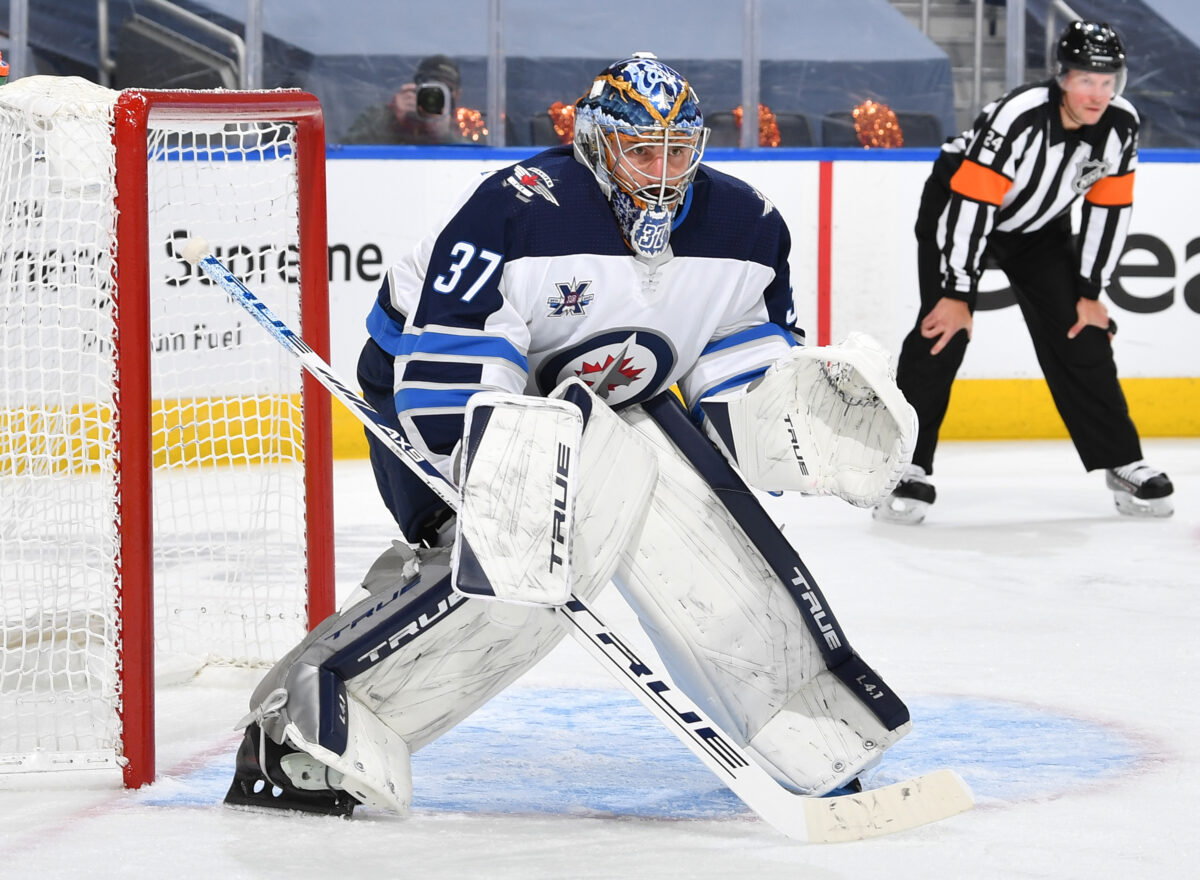
Hellebuyck is likely to start 60-plus games in 2021-22, as he doesn’t have the same calibre of backup goaltending behind him. Gone is Laurent Brossoit, who provided high-quality relief for the past three seasons. With the flat salary cap, the Dillon and Schmidt contracts on the books (combined, they command nearly $10 million) and the need to re-sign Pionk and Copp, there wasn’t enough cap space to also re-sign Brossoit. He signed a two-year deal with the Vegas Golden Knights with an AAV of nearly $2.5 million.
In Brossoit’s place will be long-time Manitoba Moose farmhand Eric Comrie, who is more affordable at just $750,000. The Jets are taking a big risk by committing to Comrie as their backup as he is both inexperienced and unsuccessful at the NHL level.
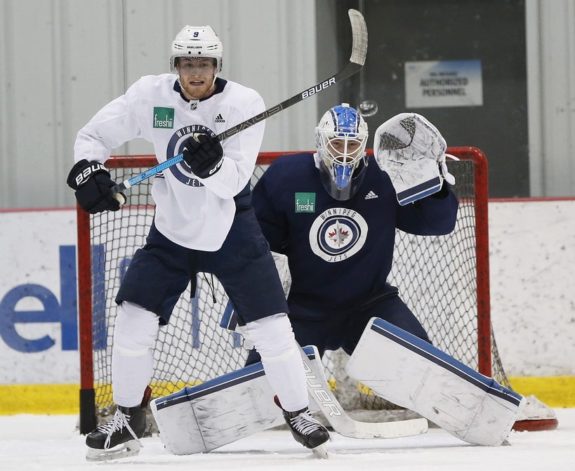
While Comrie owns most of the Moose’s all-time records and has played 207-career AHL games, he has only made eight NHL starts and nine total NHL appearances since his big-league debut in 2017.
In those nine appearances — five with the Jets, three with the Detroit Red Wings in 2019-20, and one with the New Jersey Devils last season — he holds a 3-5-0 record, 4.08 GAA, an .873 SV%, and has looked shaky more often than not. Nothing related to his NHL performances inspire much confidence.
Comrie’s leash should be short. The Jets also have Mikhail Berdin in the fold, and the flashy Russian should be given an opportunity to usurp Comrie if Comrie struggles early.
Maurice May Make or Break the Jets’ Chances
Head Coach Paul Maurice is a polarizing figure. One portion of the fan base believes he’s the right man to lead the Jets into the promised land, and point to his 1656 games of experience as an NHL bench boss as proof of that.
Another portion believes he’s taken the team as far as it can go, and point to the fact he’s never won anything significant in those 1600-plus games — or in seven-and-a-half seasons as the Jets’ bench boss — as proof fresh blood behind the bench is needed.
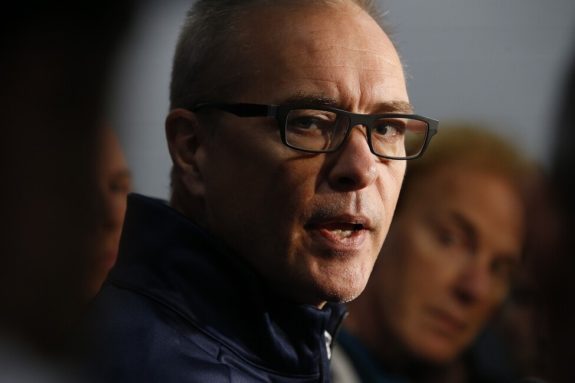
It’s true Maurice is a stubborn man loathe to depart from the status quo. It’s true he has a habit of trotting out the same old lines and defensive pairings over and over — even ones proven not to work at all. It’s true his veteran bias has held the team and top prospects back. It’s true he was vastly out-coached by the Canadiens’ Dominique Ducharme this past June.
But it’s just as true that he is well-respected by both the Jets’ front office and his players alike, especially Wheeler and Scheifele, who gave him ringing endorsements and their full support at the end-of-season media availability. Wheeler has famously said “he’d go through a brick wall” for Maurice.
A kitchen can be stocked with the finest ingredients — filet mignon and fresh farm-to-table produce — but if the cook doesn’t know how to use them, you’ll end up with dry, overcooked steak and insipid, unseasoned greens. Conversely, a skillful chef with great knowledge can turn inexpensive ingredients — a flank steak, for example— or even inferior ones — cans of Spam — and still be able to put together a meal to remember.
Cheveldayoff has given Maurice more than enough ingredients to succeed, far more steak than Spam. Success may well hinge on well the coach can utilize and deploy the talent at his disposal.
The Jets have too much potential to be squandered and are in “win now” mode, with Cheveldayoff having spent right up to the cap ceiling. If they get off to a slow start, they should have no qualms with kicking Maurice out of the kitchen.
What do you think about the Jets’ chances at contending for the Stanley Cup in 2021-22? Possible or a pipe dream? Comment below!